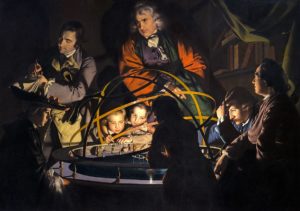 Many small farmers, however, attached themselves to people controlling good land or remained where they had been living. Historian Regine Pernoud described the process this way:
Many small farmers, however, attached themselves to people controlling good land or remained where they had been living. Historian Regine Pernoud described the process this way:
Some little farmer, powerless by himself to assure his security and that of his family, applied to a powerful neighbor who had the possibility of maintaining armed men; the latter consented to protect the farmer in exchange for which the farmer would give him a part of his harvest.
And so many people did this as well.
But the greatest adaptation of this period was the removal of slavery.
Europe inherited some 15 million slaves from Rome, and possibly more. But over the next several centuries, slavery was completely removed from Europe and has never returned. This was done for many reasons and in many ways, but primarily because Christianity demanded that all men were brothers. There could no longer be one law for slaves and another for free men, as it had been in Rome, Greece and in many others places. In a Christian society all were equal before God, all worshiped in the same churches, all heard the same sermons, and so on.
And it’s important to note that slavery had never before been eliminated on this scale. The Jews of Jesus’ time were moving in this direction, but the Romans stopped them. The Christians of this time completed the job, and on an enormous scale.
What Was Discovered In The Void
Rome broke apart and failed in Europe, but the people who lived there remained, and to most of them, it felt like they were living in a sort of vacuum or void. From the Sumerians onward, rulers had supplied people with an emotional support system.
That is, the empires presented themselves to people as superior entities; things larger than mere humans. That gave people a way to feel good and important, even though they had personal problems. It allowed them to feel like part of something larger than themselves.
Escaping from their bad feelings is (at least in a way) easier for most people than working to fix them. And so, people joined themselves, emotionally, to huge systems. And there many of them remained until the systems fell apart.
But within the void of their emotional partner going away, the European people discovered something of a completely different type. Historian Caroll Quigley described it this way:
At about 900 AD there was no empire, no state, and no public authority. The state disappeared, yet society continued. It was discovered that man can live without a state. It was discovered that economic life, religious life, law, and private property can all exist and function effectively without a state.
The people of this post-Roman era discovered that all the necessary things of life could exist and function without a large and powerful partner. We’ll look at this in Lesson Ten, but for now the most important thing is to understand that these people adapted to their new conditions and created new ways of life.
END
LESSON PLAN
As always, go slowly and be sure the students understand the lesson as completely as possible.
It would probably be a useful side-venture to study the rivers of Europe, and especially how they connected to the North Sea. These rivers were extremely important to the people we covered in this lesson, and you’ll find that more or less all the major cities are to be found next to them or around them.
As usual, I simplified some of the quotes. I do this as minimally as possible, but I want young students to understand them without having to struggle with terminology.
Again I’ve italicized new and significant words. You may want to spend time on these with your students:
Capricious.
Decriminalized: Not endorsed, but no longer be punished.
Decentralized: We’re repeating ourselves here, but I think it is warranted.
Legitimacy: Again repeating ourselves, but again warranted, especially because it’s used so many times in this lesson.
Kernel: As in “the core, center or essence.”
Reparation: Making a victim whole, as opposed to mere punishment.
Class distinctions.
Therapeutic.
Benefactor.
Vacuum.
Relics: Holy relics: the bodies or body parts of saints, splinters of the true cross, and so on. Also the belief that they carried special powers… that they acted as a sort of conduit between heaven and earth.
Standing: A social position, implying a status hierarchy.
Diocese (plural, dioceses): The area overseen by a bishop. The term and practice were transferred over, directly, from Roman administrative zones. This term is still used in the Catholic churches.
Gilded.
On the toleration of Christianity: It was decriminalized by the emperor Constantine and his co-emperors in 311, with an Edict of Toleration. This was a year and a half before the famous Battle of the Milvian Bridge, where Constantine claimed to have had a conversion experience.
The Terulian passage (and I avoided the nastier parts) is from A Fragment Concerning The Excrable Gods of The Heathen.
The Galen passage is from Summary of Plato.
The Julian passage is from a letter to Arsacius, High-priest of Galatia.
The Chris Wickham passages are from his book, The Inheritance of Rome.
The Peter Brown passages are from his book, The Cult of The Saints.
The Robert Latouche passages are form his book, The Birth of the Western Economy.
The Peter Wells passages are from his book, Barbarians to Angels: The Dark Ages Reconsidered.
The Regine Pernoud passage is from her book, Those Terrible Middle Ages: Debunking The Myths.
The passage where Jesus specifically opposes hierarchy is in the gospel of Mark, chapter 10, verses 42-43.
The Caroll Quigley passage is from his book, Tragedy and Hope.
END
**
Paul Rosenberg
freemansperspective.com
